Content warning: domestic abuse / domestic homicide
Aim
Change the way press reports fatal domestic abuse.
Why?
Every three days, a woman is murdered by her partner or ex-partner. The way the media reports on these deaths directly influences public understandings of domestic abuse – and how we can prevent it.
When a woman is killed by someone she’s been in a relationship with, her death marks the endpoint to a sustained period of coercive control. Accurate and dignified reporting of these killings is essential to preventing more deaths. In the same way journalists understand they have a responsibility to report suicides with care, Level Up calls for fatal domestic abuse to be treated in the same way.
Sign the petition
Sign
How it began
The Level Up team read the newspapers every day, scanning for news on gender justice in the UK. In the summer of 2018, the team noticed several cases of fatal domestic abuse being reported in the press in an irresponsible, inaccurate way. With headlines citing “spurned lovers” and “jealous rages”, framing acts of abuse as “crimes of passion” rather than crimes of control, the media was actively reinforcing the myths that keep killing women.
There are strict media guidelines on reporting suicide. Fatal domestic abuse is an equally serious and preventable public health problem – but is too often seen as a “private” issue. Level Up believes that every article is an opportunity to prevent further deaths, so we set about trying to improve the way fatal domestic abuse is reported – both to provide dignity and justice for families, and to share accurate public health information.
The journey so far
2018:
In October 2018, Level Up launched a petition targeting press regulator IPSO to introduce a new clause in their Editor’s Code on reporting of fatal domestic abuse.
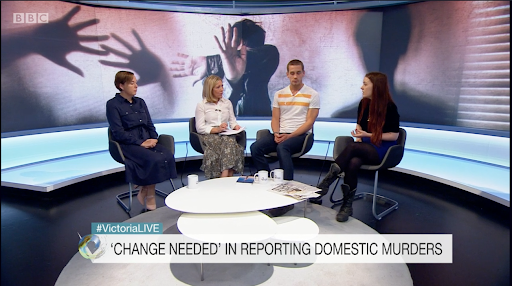
Over 20,000 Level Up supporters signed it.
Shortly after, Level Up published its media guidelines, informed by domestic abuse experts, criminologists, victims’ families and journalists. We launched the guidelines on BBC Victoria Derbyshire, with Ryan Hart and Joanne Beverley, sister of Natalie Hemming, speaking about how the media had failed their families.
With the public and media on our side, press regulator IPSO opened their doors and Level Up had several meetings with decision makers. Ryan Hart, Frank Mullane, founder and CEO of victims’ support service AAFDA and leading criminologist Jane Monckton-Smith joined these meetings to help pressure the regulator to change their editors’ code, and if not, put their weight behind the guidelines.
2019:
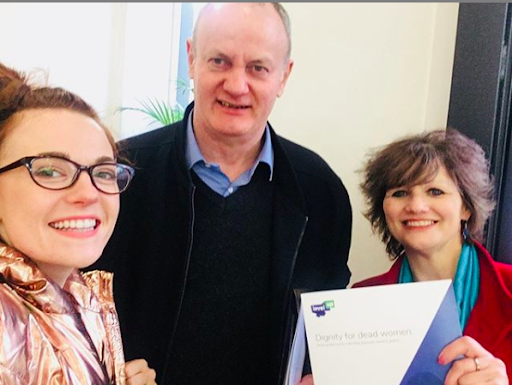
By spring 2019, after several meetings, Level Up’s media guidelines were backed by both press regulators IPSO and IMPRESS, and Level Up supporters crowdfunded the money to make sure a copy was sent to every single newsroom in the country. IPSO said that guidelines should be enough to spark editorial change, and that Editor’s Code change was not needed because existing provisions on ‘intrusion into grief or shock’ would cover this area.
2020:
In early 2020, Level Up published research that found 2 in 3 families bereaved by domestic homicide had their grieving process negatively impacted by the media reporting on their loved one’s case. This research was presented by victims’ families to IPSO’s Head of Standards in February 2020.
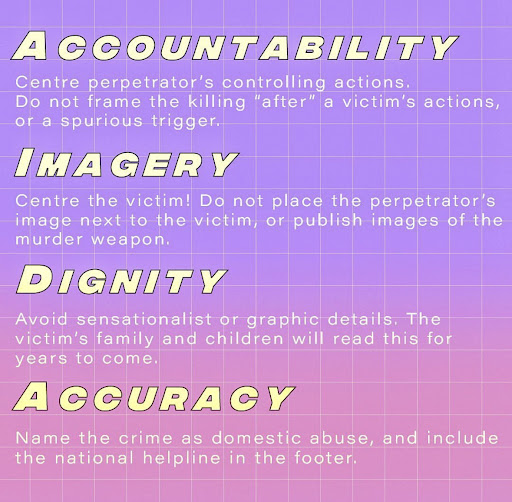
2021:
In 2021, Level Up began working with domestic abuse training service AVA to roll out CPD-accredited online trainings for journalists to attend. During the development of this training, the previous six-point guidance was shortened to four points and an acronym AIDA.
We know the messengers for this work are vital, which is why each training features powerful testimony from domestic abuse survivors and victims’ families, and the sessions are co-facilitated by award-winning multimedia journalist Helena Wadia. To date, Level Up has trained over 500 journalists.
2022:
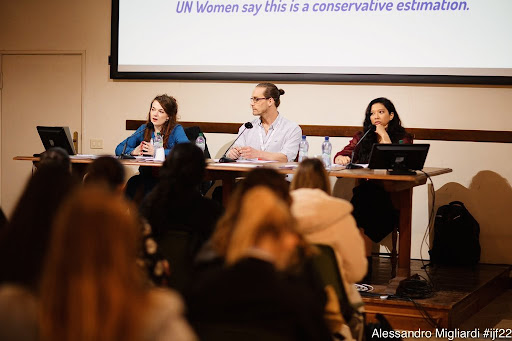
In March 2022, Level Up was invited to the
International Journalism Festival in Perugia to deliver training on reporting fatal domestic abuse. Janey, Ryan Hart and Megha Mohan delivered the sold-out session to a group of over 100 journalists from across the world. Level Up have since delivered training to a European Union conference in Malta, and to 16 journalists from 16 different countries at the Reuters Institute.
2023:
In February 2023, the petition received a surge in signatures after the terrible reporting of Emma Pattison’s death. In March 2023, the Level Up team delivered the petition, totalling 26,703 signatures, to IPSO’s head offices. The team were joined by four women who had lost their mothers, sisters and daughters to fatal domestic abuse and Dawn Butler MP.
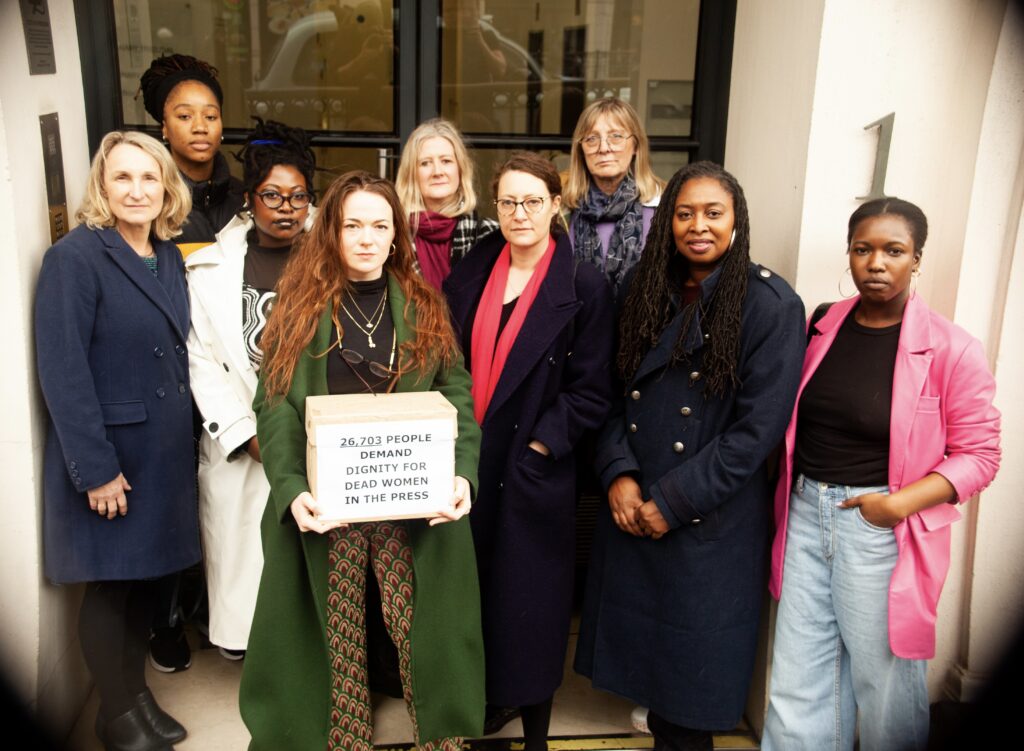
The petition was accompanied by Level Up’s submission to the 2023 IPSO Editor’s Code Committee review, endorsed by the d
omestic abuse sector as a whole. Level Up are calling for a sub-clause to be added to Clause 4 of the Editor’s Code of Practice, which newsrooms are legally bound to follow.
The campaign continues in a two-part strategy: training journalists behind the scenes, and publicly complaining about irresponsible and inaccurate reporting. With both the Level Up team and our wide community of supporters taking action inside newsrooms and on social media, we’re slowly and surely effecting change – and our media guidelines are both a helpful resource to support journalists, and a tool to hold them to account.
To hear more about the campaign and how you can support it, join our mailing list.
You can also make a donation to support this ongoing work.

